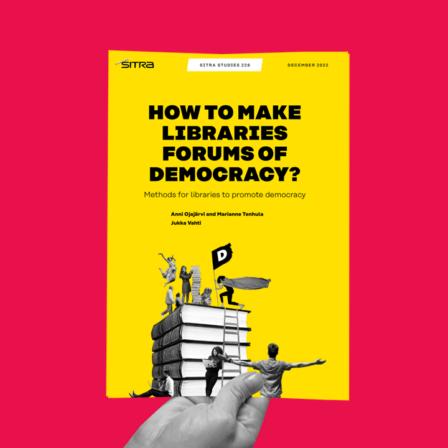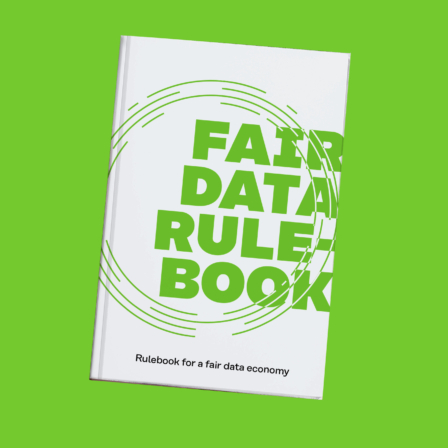The data economy is present in people’s everyday life in the form of various services: some of them operate impeccably but too many use data collected about individuals in dubious ways. Digital giants have emerged as precautionary examples, but the practices and competence of other operators also leave room for improvement.
The opportunities offered by data use are widely recognised but the means of using data require modification and common rules. Data is a significant, constantly renewable raw material, which, through fair use, can benefit companies, public administration and individuals alike.
In 2018, Sitra’s project started out to address the challenges of the data economy and to build a fair data economy model and tools, just before the European Union’s General Data Protection Regulation (GDPR) General Data Protection Regulation (GDPR) Regulation (EU) 2016/679, the European Union’s ("EU") new General Data Protection Regulation ("GDPR"), regulates the processing by an individual, a company or an organisation of personal data relating to individuals in the EU. Open term page General Data Protection Regulation (GDPR) entered into force. The efforts were boosted by Finland’s EU Presidency as well as the EU’s data strategy and regulation.
“We have tried to respond to companies’, decision-makers’ and the general public’s need for information and, at the same time, influence decision-making and build concrete tools for a fairer data economy in co-operation with extensive partner networks,” says Jaana Sinipuro, Project Director at Sitra.
The means of using data require modification and common rules.
The project has created a practical model, rules and tools for companies for the provision of responsible and sustainable digital services. The practical tools include the Rulebook for a Fair Data Economy and the IHAN testbed, where digital services under development can be tested. The IHAN business programme pilot project helped SMEs create new business with data and improve their preparedness to adapt to post-crisis times.
Consumers are plagued by unclear privacy and cookie policies. This is a problem that the GDPR has not been able to solve. According to surveys that have been conducted twice in four countries, many people would like to have a fair data economy label even though a significant share of companies are not interested in it.
The transparency of data use is rare in digital services and on websites. The digital footprint survey (On the trail of personal data) showed that an enormous amount of data is collected about ordinary people and used in complex marketing-related networks. Sitra’s online test for the users of digital services helps people understand their own online behaviour and provides support for managing it better.
“Unclear cookie policies and the non-transparency of data use impair customer experience and drive people away from online services. Data use should be part of corporate and social responsibility. This is where digital service providers should change their approach,” says Jaana Sinipuro.
Two of the project’s publications, “A Roadmap for a Fair Data Economy” and “35 proposals to make the European data strategy work”, provide decision-makers with information. The project topics have been discussed actively in the Datatalouden tilannehuone (Data economy situation room) meetings that were open to everyone.
The project’s success has required three years of extensive co-operation among decision-makers, companies and NGOs, such as the MyData community, which has spread from Finland to become an international operator. New international communities and projects have also emerged, such as the Data Sovereignty Now community, which defends the data-related right of self-determination, and the EU’s TEHDAS Joint Action, which concerns health data and is co-ordinated by Sitra. The role and competitiveness of Finnish companies within the digital single market are boosted by playing an active role in the Gaia-X initiative, in which Sitra co-ordinates Finland’s Gaia-X hub.
“Even though our project finishes at the end of June, many new Sitra projects will rely on the IHAN legacy. Meanwhile, we are publishing all the key points in our new publication, ‘A fair data economy is built upon collaboration’,” says Jaana Sinipuro.



















Read more